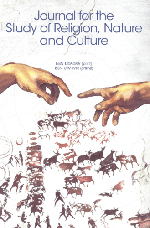** Submission are now closed for the 2019 conference **
Call for Proposals for a Fully Online Session
In addition to the call for proposals for papers and panels to be presented in Cork, the ISSRNC also welcomes proposals for papers and panels that will be presented fully online and do not require presenters to travel to Cork. All conference participants, both online and in-person, will be encouraged to view and discuss the online presentations. The fully online session is a pilot project and we expect the proposal process to be competitive. It is not possible to switch from an in-person to an online presentation after the deadline for proposal submissions.
The online presentations will be available for viewing on the conference website two weeks surrounding the Cork conference (June 6-20, 2019). Question and answers will also take place online during this period, as participants and registered attendees will be able to pose questions to speakers via online comments and speakers will be able to reply in the same way.
While we realize that online presentations will not replicate the face-to-face interaction of a conventional conference, we hope that it will nonetheless promote lively discussion, as well as help build a community of scholars with intersecting research interests. An advantage to this approach is that individuals who would not otherwise be able to become involved in the conference (owing to distance, financial limitations, and so forth) will be able to take part. Although this online conference will have its own carbon footprint, as data centers and web activity also require energy, we expect that it will only be a small fraction of that of a conventional conference, likely just 1-3%.
Instead of traveling to the conference to attend panels and deliver a talk, speakers agree to do the following:
1) Film yourself giving a talk of 15-17 minutes. The webcams that come with desktop and laptop computers have improved dramatically over the past few years. Aftermarket webcams with noise cancelling microphones, which can be purchased for under $50, can often provide even better quality. It is also the case that most computers have video recording software pre-installed, such as Apple’s QuickTime, Consequently, it is now possible, and relatively easy, to record a talk of surprisingly good quality in your home or office. How easy is it and how good is the quality? A sample talk that explains the concept and process in detail can be found here: http://ehc.english.ucsb.edu/?p=12048.
2) Take part in your online Q&A session by responding to questions raised by your talk. You will automatically receive an email each time a new question is posed. Only registered conference participants (this includes speakers, as well as others who register for the conference) will be posing questions.
3) View as many of the talks as possible, posing questions of your own to speakers. This is especially important, as this is how you will meet and interact with other conference participants. As with any academic conference, our goal is help establish relationships and to build a community. In this case, since travel has been removed from the equation, our hope is that this community will be diverse and truly global.
Proposals and Deadlines
Proposals for online papers and sessions should address the themes in the general call for papers, and must include two documents:
- The first should be a 150-word abstract that includes the Title, the name and contact information of the Participant, and a note that the proposal is for an ONLINE presentation.
- The second document should be a 500-word (or less) description of the paper that includes the title, a note that the proposal is for an ONLINE presentation, and that indicates the methods, argument, and findings as well as the relevant literature engaged. Session proposals should include paper proposals for each participant as well as an overview document describing the session title, theme, participants, and order of presentation.
Papers will be anonymously peer-reviewed by an international scholarly committee and decisions made by late January 2019.
The online conference will take place from June 16-June 20, 2019.
Please send any questions regarding online presentations to
All presenters must be members in good standing of the International Society for the Study of Religion, Nature and Culture by 1 April 2019. All scholars interested in religion, nature and culture are encouraged to support the Society by joining or renewing here. Presenters and session organizers are encouraged to submit their articles for publication, or their sessions for special issues, to the official publication of the ISSRNC, the Journal for the Study of Religion, Nature, and Culture (JSRNC).
Our conference’s online sessions are based on the model of a fully online conference that was staged by UC Santa Barbara in May of 2016. We are grateful to the organizers of that event for providing detailed guidance to support our society’s online efforts! As the UCSB conference’s website contains a complete archive of the event, please visit it if you have questions relating to how this conference will work. In particular, the opening remarks and the accompanying Q&A session help explain the rationale for this approach while also demonstrating it. While the ISSRNC’s initial foray into online conferences will take place as part of our in-person conference in Cork, we hope to develop additional fully online, nearly carbon neutral conferences in the future.










